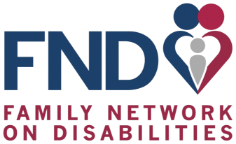INformation Hub
State Agencies Addressing Disabilities
State Agencies Addressing Disabilities
Updated March 2017
So you’re looking for the resources in your state that can help you address disability issues. Great idea. There are a lot of resources, in fact. At least there are a lot of possibilities for help that can be explored.
What’s Available in Your State?
 It’s amazing how many organizations and agencies there are in most states to address the needs of individuals with disabilities. Some focus on adults, but there are quite a few focused on children with disabilities. In your state, for example, you might have state agencies addressing the needs of children and youth with autism, blindness or visual impairment, deafness or hearing loss, developmental disabilities, mental health issues, or special health care needs.
It’s amazing how many organizations and agencies there are in most states to address the needs of individuals with disabilities. Some focus on adults, but there are quite a few focused on children with disabilities. In your state, for example, you might have state agencies addressing the needs of children and youth with autism, blindness or visual impairment, deafness or hearing loss, developmental disabilities, mental health issues, or special health care needs.
So, how do you connect with relevant agencies in your state?
Your best bet is to get in touch with the Parent Training and Information (PTI) Center that serves your area. Many States also have a Community Parent Resource Center (CPRC) that serves families of children with disabilities. To find the Parent Center nearest you, visit:
http://www.parentcenterhub.org/find-your-center/
Find Help for Infants and Toddlers with Special Needs
Do you have an infant or toddler with special needs, or are you concerned about your little one’s development? Get in touch with the early intervention system in your state.
Early intervention is a system of services for infants and toddlers with developmental delays or disabilities (birth to the third birthday). It’s incredibly helpful to very young children—so if you are concerned about your little one’s development, you’ll want to take advantage of the services available in early intervention programs. Those will start with a thorough and individualized evaluation to see if your child does, indeed, have a developmental delay or disability. This evaluation is provided free of charge to families.
The Early Childhood Technical Assistance Center (ECTA Center) is the place to go to identify where to enter the system in your state. Your early intervention contacts include the coordinators for early intervention itself (known as Part C coordinators), the coordinators for preschool programs (known as Section 619 coordinators), and the ICC (Interagency Coordinating Council) contacts for the state. You’ll find all these listed under “Contacts” at: http://ectacenter.org/contact/contact.asp
Health Care for Uninsured Children
Did you know that each state has a health insurance program for children? Children who don’t have health insurance right now are very often eligible for state medical coverage. The insurance is available to children in working families, including families that include individuals with a variety of immigration status. To find out what your state’s policies are, what’s covered, and how to apply, call 1.877.543.7669 or visit:
http://www.insurekidsnow.gov/index.html
The same information is available in Spanish, too! Find all at:
http://espanol.insurekidsnow.gov/index.html
Need a Place to Stay While Your Child is in the Hospital?
Visit the website of the Healthcare Hospitality Network, which can help patients and their families find lodging and other supportive services when confronted with medical emergencies.
http://www.hhnetwork.org/
Looking for a Private Special Education Facility?
Visit the National Association of Private Special Education Centers (NAPSEC). Use NAPSEC’s Directory to identify a center with the services you need.
http://www.napsec.org/parents.html
State Resources for Children with Special Health Care Needs
Each state has a Title V program (funded by the Maternal and Child Health Bureau) that works to ensure the health of the mothers, women, children, and youth, including children and youth with special health care needs, and their families. Find the contact information for your state’s program at:
https://mchb.tvisdata.hrsa.gov/
Having Trouble With Reading? Find a Literacy Program in Your Community
Visit NIFL, the National Institute for Literacy. Its site overflows with resources, including a database of literacy programs that you can search to find one in your neck of the woods.
Find the directory of programs at:
http://literacydirectory.org/
Independent Living
One of the most useful resources in the independent living area are the nationwide network of independent living centers(ILCs). ILCs are nonresidential, community-based agencies that are run by people with various disabilities. ILCs help people with disabilities achieve and maintain self-sufficient lives within the community. Operated locally, ILCs serve a particular region, which means that their services vary from place to place. ILCs may charge for classes, but advocacy services are typically available at no cost.
To find out more about ILCs in your area, here are two national-level organizations that can put you in touch with state and local info:
Independent Living Research Utilization Project
(where you can find contact info for your Statewide Individual Living Council (SILC)
http://www.ilru.org
National Council on Independent Living
(to find contact info for local-level ILCs)
http://www.ncil.org
Looking for Vocational Rehabilitation Services?
By contacting your local vocational rehabilitation office, you can tap into a wealth of resources related to employment options for people with disabilities. To identify the VR office in your vicinity, visit:
http://askjan.org/cgi-win/TypeQuery.exe?902
Vocational rehabilitation is a nationwide federal-state program for helping eligible people with disabilities to define a suitable employment goal and become employed. Each state capital has a central VR agency, and there are local offices in most states. VR provides medical, therapeutic, counseling, education, training, and other services needed to prepare people with disabilities for work. VR is an excellent place for a youth or adult with a disability to begin exploring available training and support service options.
Would you like to explore one of the other resource pages in this section?
If so, use these quick-jump links to hop to the page of your choice.
- State Agencies Addressing Disabilities (You’re already here!)
- Parent Groups
- Disability Groups
- Mental Health Resources
- Resources within the Medical and Healthcare Community
- Services for adults with disabilities
Give us a call at (727) 523-1130 or (800) 825-5736 or request a callback by clicking below.
311 South Missouri Ave, Clearwater, FL 33756
(727) 523-1130
(800) 825-5736

